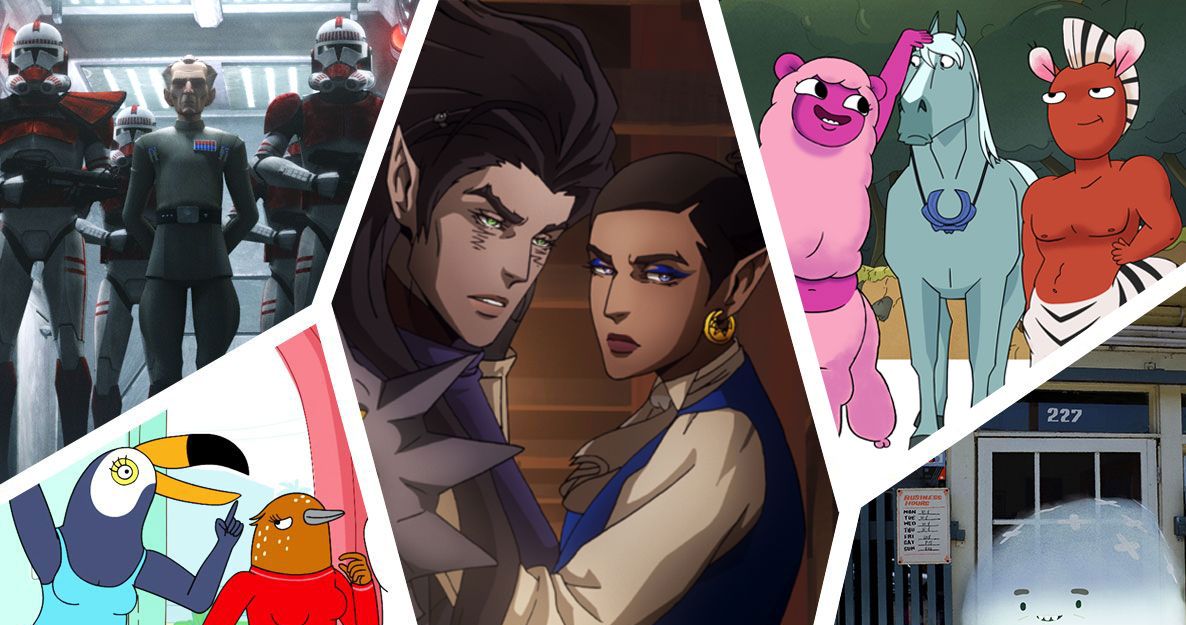A tumble motion picture season (like every little thing else) in flux
7 min read
NEW YORK (AP) — Filmmaker Cary Fukunaga has been ready more than a year and a 50 % for the most significant film of his vocation, the James Bond film “No Time to Die,” to arrive in theaters. It has been a weird and surreal hold out. Months right before the much-delayed film is even launched on Oct. 8, the film’s topic track, by Billie Eilish, has now gained a Grammy.
“I experienced a dream very last night the place Sam Mendes was there,” Fukunaga said in a the latest job interview, referring to the director of the prior two Bond movies. “We had been on family vacation on some frozen lake. He was carried out with Bond films. And he was like, ‘Oh, you concluded one particular. Now you get a split.’ Then we begun, like, water skiing on a frozen lake.”
“It was a odd aspiration,” suggests Fukunaga.
The tumble motion picture season — commonly a reputable rhythm and cozy autumn consolation — is this 12 months, like substantially of the earlier 18 months, a tiny disorienting. On the way are motion pictures the moment planned to open up as significantly back as April 2020, like “No Time to Die,” summer videos that hope to obtain improved situations in autumn, and movies that have been shot and edited through the pandemic.
What has coalesced is a motion picture mishmash — a thing much much more strong than previous fall’s cobbled with each other, typically virtual slide film year — a time that stretched all the way to the Oscars in April. But the latest increase in COVID-19 scenarios owing to the delta variant has added new uncertainty to a time Hollywood had after hoped would be nearing normality.
“Everything is fluid, and anything will keep fluid,” claims Tom Rothman, chairman and chief govt of Sony Images. “It’s the antithesis of the way it applied to be. In the outdated times, you planted your flag and you didn’t transfer for hell or large drinking water. Now, there’s a great premium on getting really versatile and nimble.”
The unpredictability of the problems is universally shared but acutely felt at studios like Sony that even by the pandemic have remained largely fully commited to unique theatrical releases. Though Disney (with Disney+) and Warner Bros. (with HBO Max) have sought to hedge their bets and increase subscribers to their streaming solutions with day-and-day releases in 2021, Sony, Common, Paramount and MGM (home to Bond) — with a variety of windowing techniques — have mostly trapped to theater-first strategies.
In all the motion pictures coming this fall — between them “The Previous Duel” (Oct. 15), “Dune” (Oct. 22), “Eternals” (Nov. 5), “House of Gucci” (Nov. 24) —nothing may perhaps be very as tense as the at any time-unfolding drama about outdated-fashioned, butts-in-the-seats moviegoing. Citing the delta-driven surge, Paramount has uprooted from the season, booting “Top Gun: Maverick” to up coming yr. But on the heels of some promising box-office performances, a lot of of the fall’s top rated movies and top Oscar hopefuls are only doubling down on theatrical, and the cultural influence that will come with it. Even if it’s a gamble.
“We have a whole lot of inventory. You really do not want to keep pushing all of the films,” states Rothman. “At a certain place, you have to go.”
Just after making self-assurance in moviegoing in excess of the summer, delta has sapped some of Hollywood’s momentum. The Nationwide Exploration Team had recorded more than 80% of moviegoers had been relaxed going to theaters in July. But that variety dipped to 67% last thirty day period.
Yet summer’s previous significant movie, Marvel’s “Shang-Chi and the Legend of the Ten Rings,” gave the slide a significant lift with an estimated $90 million in ticket income over the 4-working day Labor Day weekend — 1 of the very best performances of the pandemic. Notably, it was only playing in theaters.
Even before all the numbers have been in, Rothman and Sony moved up the launch of “Venom: Let There Be Carnage,” the sequel to its $856 million superhero hit, by two months to Oct. 1. It kicks off Sony’s slate such as Jason Reitman’s “Ghostbusters: Afterlife” (Nov. 19), Denzel Washington’s “A Journal for Jordan” (Dec. 10) and “Spider-Male: No Way Home” (Dec. 17).
No studio is betting pretty as significant on film theaters this drop as Sony. The studio lacks a important streaming system but has signed worthwhile pacts with Netflix and Disney to stream movies immediately after theatrical release. Discussing the disappointing results of working day-and-day motion pictures like Warner Bros.′ “The Suicide Squad” as opposed to a theater-initial strike like Disney’s “Free Dude,” Rothman a short while ago touted the clarification: “It’s the window, silly.”
“There is no financial model to — hardly ever brain make a income — to break even on the assets by themselves without the need of a windowed universe. It does not exist,” says Rothman.
That discussion — what movies open wherever and when — is certain to keep on being unsettled in the coming months, and possibly properly over and above. Warner Bros. has pledged to return to unique theatrical releases, for 45 times, subsequent calendar year. But little this drop — such as the movie calendar — is a absolutely sure issue.
“Until the pandemic is truly at the rear of us, I don’t consider that you can prognosticate about what the foreseeable future of cinema is heading to be,” says Rothman. “It’s continue to on unexpected emergency footing right now.”
So Hollywood’s summertime in limbo will extend into the drop. But much more than any former stage in the pandemic, a full ton of videos are lined up. The Venice and Telluride film festivals have kindled buzz for a large array of upcoming films, like Jane Campion’s lauded Netflix drama “The Ability of the Dog” (Nov. 17), with Benedict Cumberbatch. The Oscar race could have some significant star ability, way too. Amid the early standouts: Kristen Stewart as Princess Diana in “Spencer” (Nov. 5) and Will Smith as Richard Williams, father of Venus and Serena, in “King Richard” (Nov. 19).
In “The Eyes of Tammy Faye,” Jessica Chastain transforms into the infamous televangelist. Searchlight Shots will launch it Sept. 17 in theaters.
“We like that communal knowledge, specially just after a 12 months and a 50 percent of getting starved of it. It doesn’t necessarily mean streaming is going away. It is right here to stay,” states Chastain, who also stars in the HBO miniseries “Scenes from a Marriage.” “In my mind, I just see the business as increasing.”
Just how lots of movies have been launched for the duration of the pandemic is usually underestimated. But even with a few substantial-profile departures, the approaching time is crowded. Apple has Joel Coen’s “The Tragedy of Macbeth,” with Denzel Washington. Amazon has the musical adaptation “Everybody’s Talking About Jamie” (Sept. 17). New motion pictures are on tap from earth-class filmmakers like Paul Thomas Anderson, Guillermo del Toro (“Nightmare Alley,” Dec. 3), Pedro Almodóvar ( “Parallel Moms,” Dec. 24), Asghar Farhadi (“A Hero,” Jan. 7) and Paolo Sorrentino ( “The Hand of God,” Nov. 24).
There is also a feast of docs which include Julie Cohen and Betsy West’s Julia Youngster portrait “Julia” (not still dated) Liz Garbus’ “Becoming Cousteau” (Oct. 22) Elizabeth Chai Vasarhelyi and Jimmy Chin’s “The Rescue” (Oct), about the 2018 Thai cave rescue and, fittingly, a portrait of a single of the pandemic’s most ubiquitous faces, infectious illness professional Dr. Anthony Fauci, in John Hoffman and Janet Tobias’ “Fauci” (Sept. 10).
Netflix will release three dozen movies between now and Christmas — like Maggie Gyllenhaal‘s directorial debut “The Dropped Daughter” (Dec. 17) the Western “The Tougher They Fall” (Nov. 3), with Jonathan Majors and Idris Elba Lin-Manuel Miranda’s directorial debut “Tick, Tick … Growth!” and Antoine Fuqua’s “The Guilty” (Sept. 24), a one-environment criminal offense thriller starring Jake Gyllenhaal as a demoted law enforcement officer using 911 calls.
Just in advance of output began previously this year, Fuqua came in near get in touch with with someone who examined beneficial for the coronavirus. To continue to keep length from his forged and crew, he directed the motion picture from a van parked outside the set.
“It’s a bizarre world we’re in at the second, and it wears on all of us quite a little bit,” suggests Fuqua. “But I try out to continue to be optimistic. That is why ‘The Guilty’ occurred. I do feel there is a accountability for all of us to forge forward, not wallow in the scenario that we’re in, and obtain new ways to do it.”
Hopefully, the extensive hold off of a variety of films that have been ready in the wings for far more than a yr — like Steven Spielberg’s “West Aspect Story” (Dec. 10), Wes Anderson’s “The French Dispatch” (Oct. 22) and, indeed, “No Time to Die” — will shortly last but not least be above.
“What I haven’t gotten on this one is the fulfillment of anybody else seeing the movie and indicating ‘I hated it’ or ‘I like it,’ states Fukunaga. “That’s the aspect you are waiting for. Some people today are going to like it. Some individuals aren’t going to like it. But you nevertheless want to listen to it. Even if you don’t want to hear it, you want to hear it.”
___
Stick to AP Film Author Jake Coyle on Twitter at: http://twitter.com/jakecoyleAP






